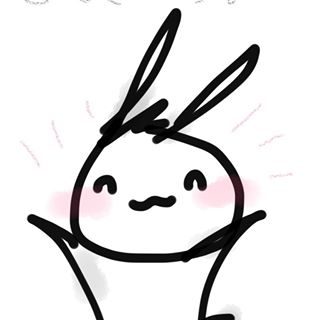在我的印象里,从有记忆以来,小学开始,我就特别希望别人喜欢我。
或者更准确地说,特别害怕被人讨厌。
从小到大这个话题也想了很多遍。有在ky看到过的理论说,怕被人讨厌的人,大都是成长过程中环境特别批判性,或者特别危险。
在危险环境,比如家庭暴力中成长起来的孩子,习惯了要时刻观察身边人的眼色。因为如果不小心做了什么惹施暴者不开心就会被揍,而孩子又无法离开监护人,所以他们把『别人的心情和喜好』跟自己的安危紧密联系在一起,自然特别会察言观色,也害怕被讨厌。
而在批判性环境中成长起来的孩子,习惯的是爱的有条件性。成绩好父母就夸赞表扬,做错事父母就没有好脸色,而,再次,父母是孩子的唯一依靠和安全感来源,所以为了能感到安全与关爱,也逐渐习惯做什么都得努力得到身边所有人的认同与喜爱。
前段时间看的school of life系列里一本书,提到说对于别人的看法过度在乎,是信任问题。
alain说:
Where does such underconfidence around enemies come from? We should, as ever, begin with parents and sketch an imaginary portrait of types who could unwittingly create such tortured mindsets. However ostensibly loving these parents might have been, they are also likely to have felt a high degree of trust in the system. If the police were investigating one of their friends, their guess would be that the authorities were correct in their suspicions. When reading a newspaper, if they were to read a destructive review of a novel, even one by an author whose work they’d much enjoyed in the past, it would seem evident that the author had lost his talent and was now kidding the public. If the parents were friends with an architect who was up for a major prize that was then awarded to somebody else, they’d feel the friend – whose buildings they admired – must have lacked talent in comparison with the winner, whose dark asymmetrical structures they would vow at once to take a second, more respectful, look at. 如果他们发现警察在调查某个朋友,他们会假设调查是有合理原因的。如果他们看报纸的时候发现对于某个小说的风评不大好,哪怕他们以前明明很喜欢读这个作者的书,他们会想当然地认为这作者大概水平下降了。如果他们跟某位喜爱的建筑师是朋友,然后某个建筑奖项被颁发给了他的一位竞争者,他们会重新带着更仔细、更尊敬的眼光,审视并欣赏这位竞争者。
When it came to their own children, these underconfidence-generating parents would have applied a similar method of judgement: the issue of how much and where to love would have been to a large extent determined externally. If the world felt the baby was adorable, they probably were (and if not, then not so much). Later, if the child won a maths prize, it was a sign not just of competence at algebra but of being, far more broadly, a love-worthy person. Conversely, if the school report described the child as an easily distracted dreamer who looked as if he would flunk his exams, that might mean the offspring didn’t quite deserve to exist. The lovability of the child in the eyes of the parents rose and fell in accordance with the respect, interest and approval of the world. 而当这些人有了孩子,他们也习惯用类似的眼光看待他们的孩子。如果所有人都觉得他长得漂亮,他应该就是个漂亮可爱的孩子。如果孩子赢了数学竞赛,这不仅证明孩子有数学天分,还证明他是个值得关注与被爱的孩子。而相反,如果学校报告上说这孩子上课老是走神,考试八成要挂科,那说明他大概长大也不会成什么器。他们的孩子究竟有多值得被爱,是由外部世界决定的。
To be on the receiving end of such parenting is a heavy burden. We, the recipients of conditional love, have no option but to work manically to fulfil the conditions set up by parental and worldly expectations. Success isn’t simply a pleasant prize to stumble upon when we enjoy a subject or a task interests us; it is a psychological necessity, something we must secure in order to feel we have the right to be alive. We don’t have any memories of success-independent affection and therefore constantly need to recharge our batteries from the external power source of the world’s flickering and wilful interest.
Unsurprisingly, when enemies come on the horizon, we are quickly in deep trouble, for we have no ability to hold in our minds the concept that they might be wrong and we right; that our achievements are not our being, and that the failure of our actions does not presuppose failure of our entire selves. Rendered defenceless by our upbringing, we have no border post between inside and out. We are at the mercy of pretty much anyone who might decide to hate us.
Contrast this with the blessed childhood of the confident. Their parents would have maintained a vigorously sceptical relationship to the system. The world might sometimes be right, but then again, on key occasions, it could be gravely and outrageously wrong. Everyone was, in their eyes, endowed with their own capacity to judge. It is not because the crowd is jeering that the accused is guilty, or vice versa. The chief of police, the lead reviewer of The Times, or the head of the Pritzker Architecture Prize might well be idiotic; these things happen. In their role as parents, the messages of the confidence-inducing were no less generous in their scepticism: ‘You are loved in and of yourself because of what you are, not what you do.’
说得很有意思,因为对系统的过度信任。
而在这样的环境中长大的孩子,也无法意识到,当世界或者某个人对他们给予反馈的时候,对方可能是错的。他们可能是叛逆或者生性怀疑的人,但矛盾的是,他们却怀有对任何外部意见无条件的信任。
昨天正好看到Brené的dare to lead里提到类似的情况。
她写道,女儿告诉朋友的秘密被『背叛』了,女儿哭着对她说,我再也不要相信任何人了!她回答说:信任就好像一个装着鹅卵石的罐子,你对一个人的意见相信多少,应该是由一个人信任的罐头里有多少鹅卵石来决定的。对没有赢得信任的人,他们的意见是无关紧要的。对陌生人就该有对陌生人的礼貌,而对时间洗练出的朋友才能有对朋友的信任。
If you are not in the arena getting your ass kicked on occasion, I’m not interested in or open to your feedback. There are a million cheap seats in the world today filled with people who will never be brave with their lives but who will spend every ounce of energy they have hurling advice and judgment at those who dare greatly. Their only contributions are criticism, cynicism, and fearmongering. If you’re criticizing from a place where you’re not also putting yourself on the line, I’m not interested in what you have to say.
她说,如果你未曾付出过汗水与真心,从头到尾不过坐在观众席里戏谑着愤世妒俗,那你的意见对我不重要。
她说,世界很大,当你把心打开给一个未知的世界,总有人会把匕首扎下去。
而她的结论很有意思:
Don’t grab hurtful comments and pull them close to you by rereading them and ruminating on them. Don’t play with them by rehearsing your badass comeback. And whatever you do, don’t pull hatefulness close to your heart.
Let what’s unproductive and hurtful drop at the feet of your unarmored self. And no matter how much your self-doubt wants to scoop up the criticism and snuggle with the negativity so it can confirm its worst fears, or how eager the shame gremlins are to use the hurt to fortify your armor, take a deep breath and find the strength to leave what’s mean-spirited on the ground. You don’t even need to stomp it or kick it away. Cruelty is cheap, easy, and chickenshit. It doesn’t deserve your energy or engagement. Just step over the comments and keep daring, always remembering that armor is too heavy a price to pay to engage with cheap-seat feedback.
Again, if we shield ourselves from all feedback, we stop growing. If we engage with all feedback, regardless of the quality and intention, it hurts too much, and we will ultimately armor up by pretending it doesn’t hurt, or, worse yet, we’ll disconnect from vulnerability and emotion so fully that we stop feeling hurt. When we get to the place that the armor is so thick that we no longer feel anything, we experience a real death. We’ve paid for self-protection by sealing off our heart from everyone, and from everything—not just hurt, but love.
不必太信任环境,也不必变得坚硬。
保持心的柔软,留给值得信任的人。
